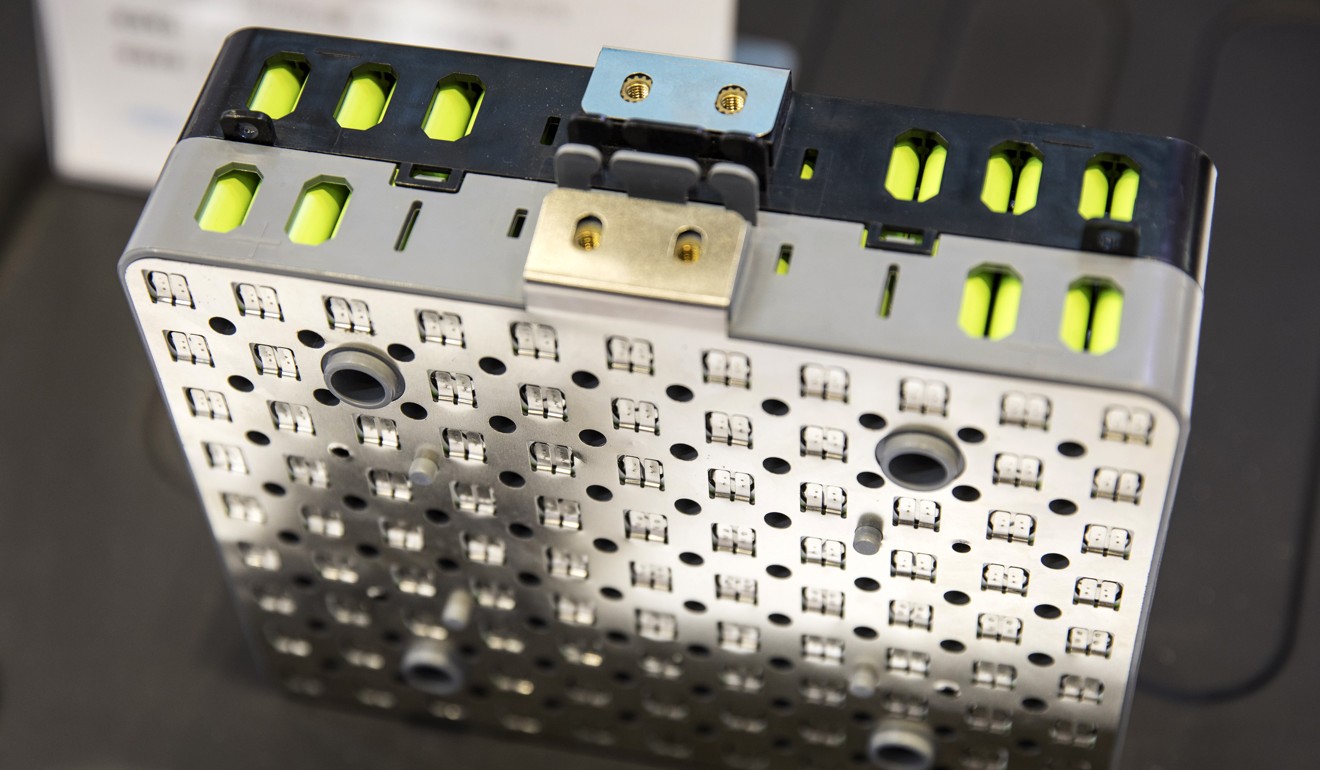
‘We don’t want that weakness exposed’: US Senator Lisa Murkowski seeks new law to offset China’s dominance in electric vehicle supply chains
- Chair of Senate’s Energy and Natural Resources Committee to introduce Minerals Security Act with fellow senator Joe Manchin
- China produces nearly two-thirds of world’s lithium-ion batteries and controls most of world’s lithium processing facilities
A US senator plans to introduce legislation on Thursday to streamline regulation and permitting requirements for the development of mines for lithium, graphite and other electric vehicle supply chain minerals, part of a plan to offset China’s dominance in the space.
While Tesla, Volkswagen and other electric-focused carmakers and battery manufacturers are expanding in the United States, they are reliant on mineral imports without a major push to develop more domestic mines and processing facilities.

US Senator Lisa Murkowski, the Alaska Republican who is chair of the Senate’s Energy and Natural Resources Committee, said she will introduce the Minerals Security Act alongside Senator Joe Manchin, a West Virginia Democrat.
“Our challenge is still a failure to understand the vulnerability we are in as a nation when it comes to reliance on others for our minerals,” Murkowski said.
China’s electric car market is growing twice as fast as the US. Here’s why
China already dominates the electric-vehicle supply chain.
It produces nearly two-thirds of the world’s lithium-ion batteries – compared with 5 per cent for the United States – and controls most of the world’s lithium processing facilities, according to data from Benchmark Minerals Intelligence, which tracks prices for lithium and other commodities and held a Washington event on Thursday designed to bring together miners, regulators and lawmakers.
The meeting, attended by more than 100 people, featured speakers from Tesla, the US Department of State and Department of Energy, as well as Standard Lithium, ioneer and other companies working to develop US lithium mines.

The US is not the only country playing catch-up with China. France and Germany asked the European Commission earlier this week to support a 1.7 billion euro (US$1.9 billion) battery cell consortium to thwart Asian rivals’ growth in the space.
“From a national security perspective, when you are vulnerable, as the United States is and many of our friends and allies are, on a resource that you need, that is a weakness,” Murkowski said. “We don’t want that weakness to be exposed.”
Murkowksi said China’s lead in the EV supply-chain sector gives the country an edge in the ongoing US-China trade dispute.
What does China’s car market need to jump start its stalled sales?
“My greatest challenge right now is to educate other members of Congress as to why this needs to be a national priority,” she said.
The Trump administration sent a State Department official to speak at Thursday’s event.
“We think it’s important for us to talk about these new technologies and how minerals play into this,” said Kent Logsdon, principal deputy assistant secretary at the department.

